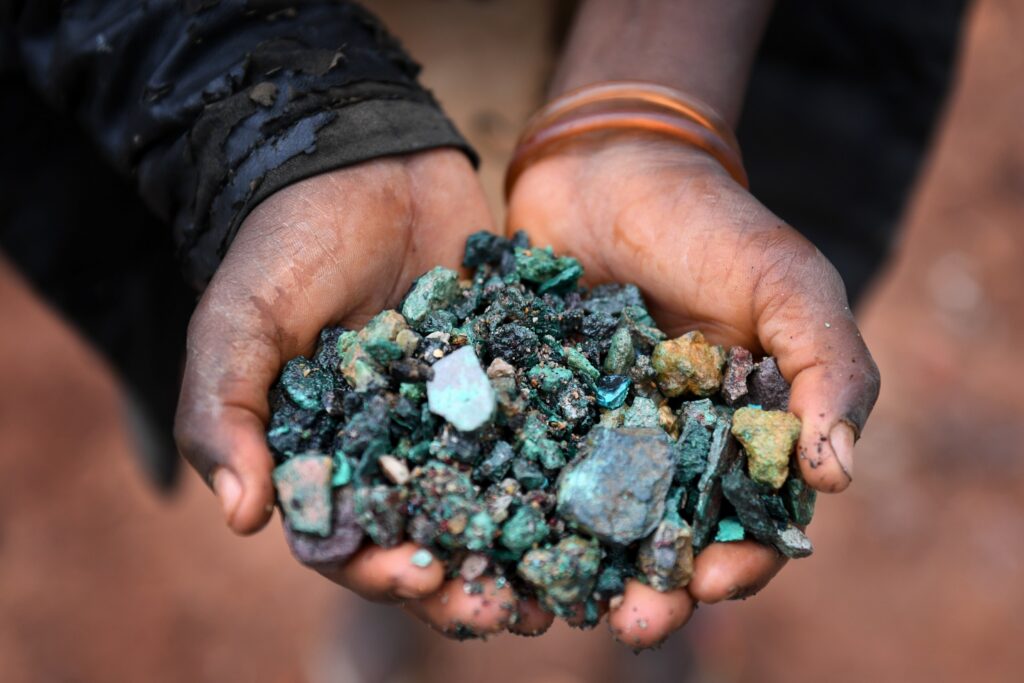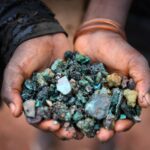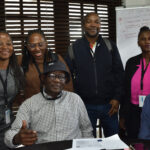Read this article in:
English
2 June, 2025The global transition to renewable energy systems has intensified demand for critical raw materials like lithium, cobalt, nickel and copper, particularly from resource-rich regions in the Global South. This surge underscores the urgent need for robust human rights due diligence (HRDD) in mining operations, as emphasized during a webinar on 22 May.
Titled Critical Raw Materials and HRDD: Opportunities for the Global South, the webinar had 40 participants from the IndustriALL Global Union regional offices in Latin America, South East Asia, and Sub-Saharan Africa and affiliated unions, alongside speakers from Industriall Europe and the University of the Western Cape, South Africa.
The webinar examined the interplay between the global energy transition and the socio-economic implications for mineral-rich regions, particularly Sub-Saharan Africa. Discussions highlighted the necessity of responsible mining practices, exemplified by frameworks like the Initiative for Responsible Mining Assurance (IRMA), to mitigate human rights abuses and environmental degradation. Recycling was also noted as a partial solution to reduce reliance on new mineral extraction, though its scalability remains limited.
Theodore Kamwimbi, a human rights lawyer from the Democratic Republic of Congo (DRC), provided a scathing assessment of the DRC’s mining sector underscoring the pressing need for responsible mining practices to confront human and workers’ rights abuses and environmental degradation.
Despite progressive mining and labour laws, implementation lags significantly. Kamwimbi documented pervasive abuses, including hazardous working conditions, discrimination, health risks, restrictions on trade union activities, forced and child labour, environmental violations, and sexual harassment. He cited reports noting that corporate cover ups and weak governmental enforcement worsened these issues. In Zimbabwe, trade unions reported that state collusion with Chinese multinationals in lithium mining stifles freedom of association and union organizing efforts.
Sophie Grenade from Industriall Europe outlined the European Union’s response to its dependency on critical raw materials from countries like the DRC, South Africa and China. The EU’s Green Deal Industrial Plan and Critical Raw Materials Act aim to secure supply chains while promoting sustainability. Key regulations, such as the Corporate Sustainability Reporting Directive and the Corporate Sustainability Due Diligence Directive, mandate companies to report and address supply chain risks starting in 2026. However, Grenade cautioned that these regulations face resistance from some employers, who argue they undermine competitiveness, casting uncertainty over their long-term implementation.
Glen Mpufane, IndustriALL director for mining, stressed on the role of trade unions in advancing HRDD by “monitoring corporate disclosures and conducting risk mapping.” He noted the absence of national action plans in many African countries, urging unions to advocate for their adoption and enforcement.
Kemal Özkan, IndustriALL assistant general secretary, emphasized the need for binding international and national regulations to “ensure fair trade, responsible investment, and local mineral beneficiation,” which are critical for holding corporations accountable in the Global South.
Discussions on union strategies on critical mineral resources will continue in conferences being organized by the IndustriALL Sub Saharan regional office on human rights due diligence and African Industrialization in September and November, respectively.


